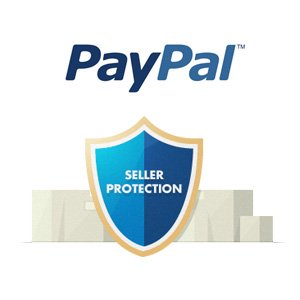Online retailers, unlike brick and mortar establishments, accept credit cards without the card actually being present for their inspection. Physical retail locations can authorize or decline purchases on the spot, because the financial establishment that issued the card will alert if a card is stolen or some other fraudulent activity is taking place. In the event that fraudulent activity does take place at a brick and mortar location, the financial provider is held responsible and the merchant gets paid just as if the customer had used cash for the transaction.
However, when fraud takes place when a purchase is made from an online retailer, responsibility shifts to the merchant, leaving the card issuer free of any liability. This leaves the merchant unpaid which could mean higher prices for other customers to make up the difference. Some merchants even cancel accounts due to the increased chance of fraud. And in extreme cases, enough fraudulent activity, even via a third party processor like PayPal, can shut down an online retailer completely, leaving them out of business.
How Third Party Payments Work
A third party processor, like PayPal, allows you to use online merchant accounts via your user account or credit card. Online transactions that accept credit cards are overall a risky practice. Depending on the nature of the business, the merchandise or services that are sold could make it an even riskier venture. Combine credit card transactions with high-risk merchandise or services and it’s even more difficult for online retailers to obtain a merchant account.
In addition to obtaining a merchant account, major credit cards, such as Visa, American Express, MasterCard, and Discover, require users to be a registered business. PayPal revolutionized how online merchants can accept payments because unlike other services, PayPal allows merchants to accept credit cards regardless of their status as a registered business or merchant account holder.
Combating Scams
When it comes to conducting business online, PayPal is in the business of protecting its verified merchants. The service takes security seriously, employing a variety of features such as fraud detection and the most innovative security available. PayPal’s data encryption team includes over two thousand specialists who work on ways to detect the latest scams and develop the techniques to combat them. Whether you’re buying textbooks online or ordering new checks from www.personalchecksplus.com you can be sure your PayPal transaction is safe. Some of the things PayPal protects against include phishing scams and stolen identities.
Here are the three steps scammers use to execute a phishing scam:
- Mass email – The scammer sends emails out to thousands, or sometimes perhaps even millions, of people at random under the guise of originating from a genuine company, such as PayPal or another online service or retailer.
- Links – Cleverly disguised as a legitimate link, clicking on things that look helpful instead lead to a fraudulent site. The false site often cleverly mimics the site mentioned in the email.
- Identity theft – Once at the website, the content is skillfully designed to extract personal details about your identity.
Merchant Perks
When sellers are PayPal verified, they not only get paid for things they sell on eBay but also for things in their online store whether consumers pay for their purchases with their credit card or PayPal account. They can even swipe cards on mobile devices that allow the feature. Monthly upgrades allow additional services such as checking out on the website directly versus a link to PayPal, syncing with various shopping cart platforms, and full control over and design of merchant checkout pages.
Regardless of whether an online merchant has Standard, Advance, or Pro membership with PayPal, round the clock toll-free telephone support, fraud protection, and the ability to accept payments in 2 dozen currencies from nearly 200 countries are just a few of the services provided across the board. In addition to online retailers, PayPal offers solutions for online financial transactions for non-profit groups, political campaigns, government agencies, and educational institutions. They even offer a solution finder service to find the right business account to fit the needs of their clients.
Without PayPal, online merchants deserving of a second chance would have less opportunity to conduct business over the internet. Their free services and low rates for extra perks make it easy for new retailers who’ve yet to establish a professional reputation to get started in business. Regardless of the goals of an online merchant or how much business they take in, PayPal offers better services for lower fees, something no other third party processor can provide.
